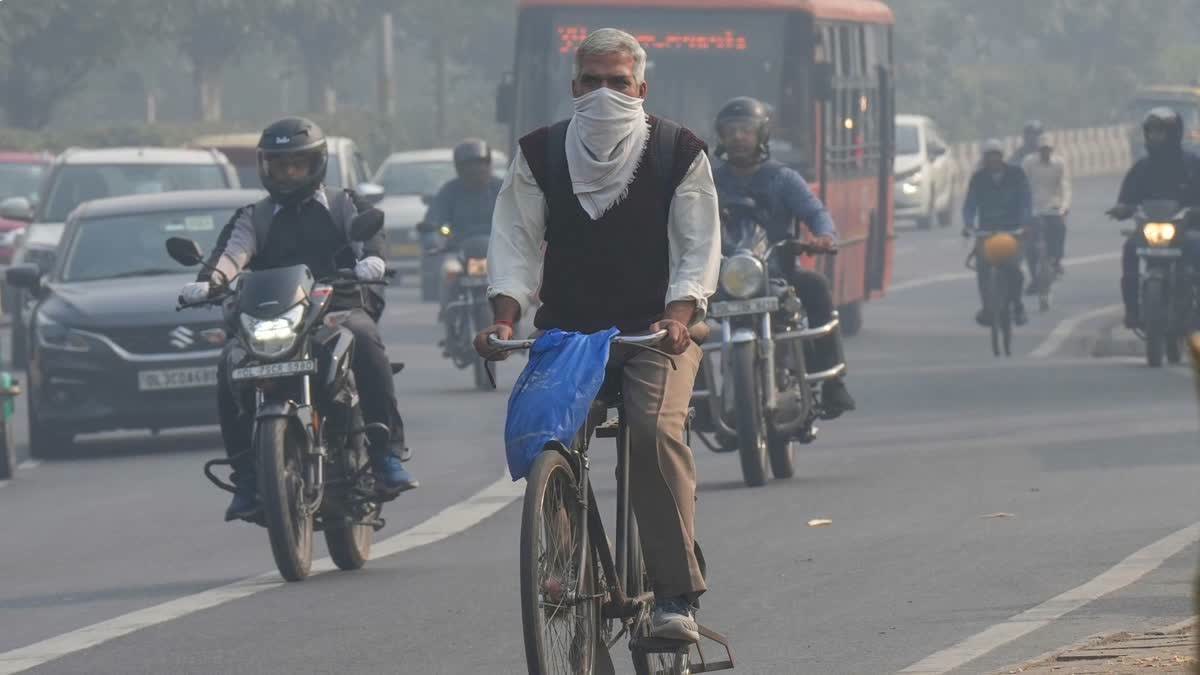New Delhi: In a welcome reprieve for the capital city, Delhi’s air quality index (AQI) fell to the ‘poor’ category at 278 on Sunday, aided by consistent winds and reduced moisture. This marked a significant improvement from the “severe” AQI of 334 recorded just the previous day. However, the improvement remains fragile as air quality remains a pressing concern in the Delhi-NCR region.
The day brought relatively clear skies and better wind conditions, with gusts reaching up to 15 km/h. Yet, these changes did little to ease the uncertainty surrounding the reopening of schools, which had been shut due to hazardous pollution levels. While authorities downgraded restrictions from GRAP IV (Severe+) to GRAP III (Severe), the situation remains dire enough to keep students indoors.
In Noida, online classes will continue on Monday, following a directive from the District Magistrate. The order, issued after AQI levels breached the 450+ mark in recent days, mandated the suspension of physical classes until at least November 25.
"In view of the instructions given by the District Magistrate, Gautam Buddha Nagar on November 18, regarding the discontinuation of physical classes from pre-school to class 12 due to the breach of Air Quality Index (AQI) of Delhi-NCR to Severe+ category with (450+AQI), all schools of the District Gautam Buddh Nagar are directed to follow the above order till November 25," stated the order issued by Dharamvir Singh, District Inspector of Schools (DIOS).
Meanwhile, Ghaziabad authorities have taken similar measures, with schools remaining closed for physical classes until further notice. The disruption in education has left parents and schools grappling with logistical challenges, as examinations and interviews are still being conducted on schedule.
On Saturday, Delhi’s air quality had plummeted back to the “severe” category, with the city recording an average AQI of 412. The worst-hit area was Wazirpur, with a toxic AQI of 467, as per data from the Central Pollution Control Board (CPCB). In comparison, nearby cities such as Greater Noida and Ghaziabad recorded better, though still unhealthy, AQIs of 250 and 252, respectively, on Sunday.
The India Meteorological Department (IMD) forecasts smog and shallow fog during the night and morning hours for the next two days, further compounding pollution concerns.
Delhi Environment Minister Gopal Rai has called for stricter enforcement of GRAP IV restrictions, which include banning non-essential trucks and halting construction activities. Late on Friday, he personally inspected checkpoints at the Singhu border to ensure compliance with truck entry restrictions.
Gopal Rai wrote on social media platform X, “Late tonight, I reached Narela/Singhu border and checked the implementation of GRAP-4. We had received complaints that some vehicles were being allowed to enter Delhi without permission. After this complaint, we have come to inspect the situation.”
However, reports suggest that daily violations, ranging between 135 and 165 trucks, continue to plague the city’s air management efforts.
In the long term, the Supreme Court has urged the central government to devise a protocol for monitoring stubble-burning regions with the help of experts. The government is also working on enhancing domestic satellite capabilities to reduce reliance on foreign data for pollution tracking.
As air pollution continues to take a toll on public health, experts emphasise the need for individual measures like using air purifiers and growing indoor plants to mitigate its impact.



